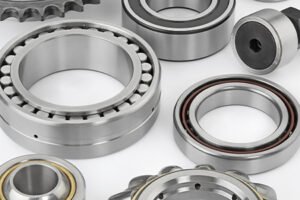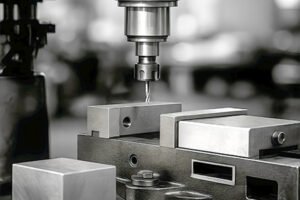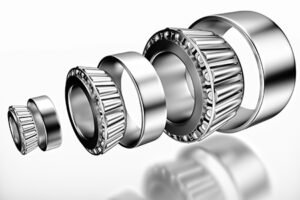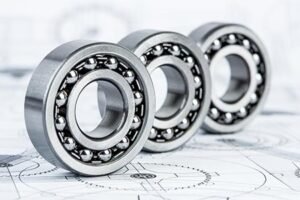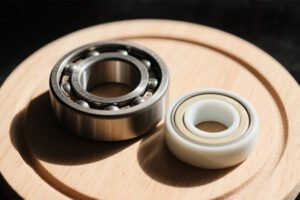1. Application of Green Materials
Green materials refer to environmentally friendly substances that are low-pollution and recyclable. These materials are gradually replacing traditional materials in bearing manufacturing. For example, high-performance composites and bio-based lubricants reduce environmental impacts while enhancing product performance and longevity.
High-Performance Composite Materials
Lightweight and high strength, reducing energy consumption
Excellent wear and corrosion resistance
Promote bearing lightweight design and longer service life
Bio-based Lubricants
Biodegradable, minimizing environmental pollution
Improve friction properties and extend maintenance intervals
Help achieve green manufacturing goals
2. Energy-Saving Process Technologies
During bearing manufacturing, energy consumption is lowered and production efficiency increased by optimizing heat treatment, surface treatment, and machining processes. The integration of digital manufacturing and intelligent control systems allows precise process control and minimizes resource waste.
Optimization of Heat Treatment Processes
- Accurate temperature control lowers energy consumption
- Improves bearing hardness and wear resistance
- Enhances production stability and consistency
Intelligent Manufacturing Systems
- Real-time production monitoring reduces defect rates
- Automatic process adjustment boosts production efficiency
- Supports green manufacturing principles and reduces emissions
3. Circular Economy and Resource Recycling
The bearing industry promotes full lifecycle management by optimizing product design and recycling materials. Scientific processing of used bearings reduces environmental pollution and lowers dependence on raw materials.
Recycling of Used Bearings
- Advanced material sorting and separation techniques
- Promotion of remanufacturing and reuse processes
- Reduces waste disposal costs and environmental burden
Design Optimization for Recycling
Modular designs facilitate disassembly
Use of eco-friendly and recyclable components
Extends product life cycle and reduces resource consumption
4. Future Development Trends
The future bearing industry will integrate smart manufacturing and digital transformation on the foundation of green manufacturing to achieve more efficient, environmentally friendly, and intelligent production systems. It will also enhance international cooperation and standardization to promote green supply chains, contributing to global sustainable development goals.
Integration of Smart and Green Manufacturing
IoT and big data improve energy efficiency management
AI optimizes production processes and quality control
Achieves intelligent energy saving and emission reduction
Global Cooperation on Green Standards
Promote unified green certifications and environmental regulations
Facilitate collaborative development of green supply chains
Enhance sustainable competitiveness of enterprises

